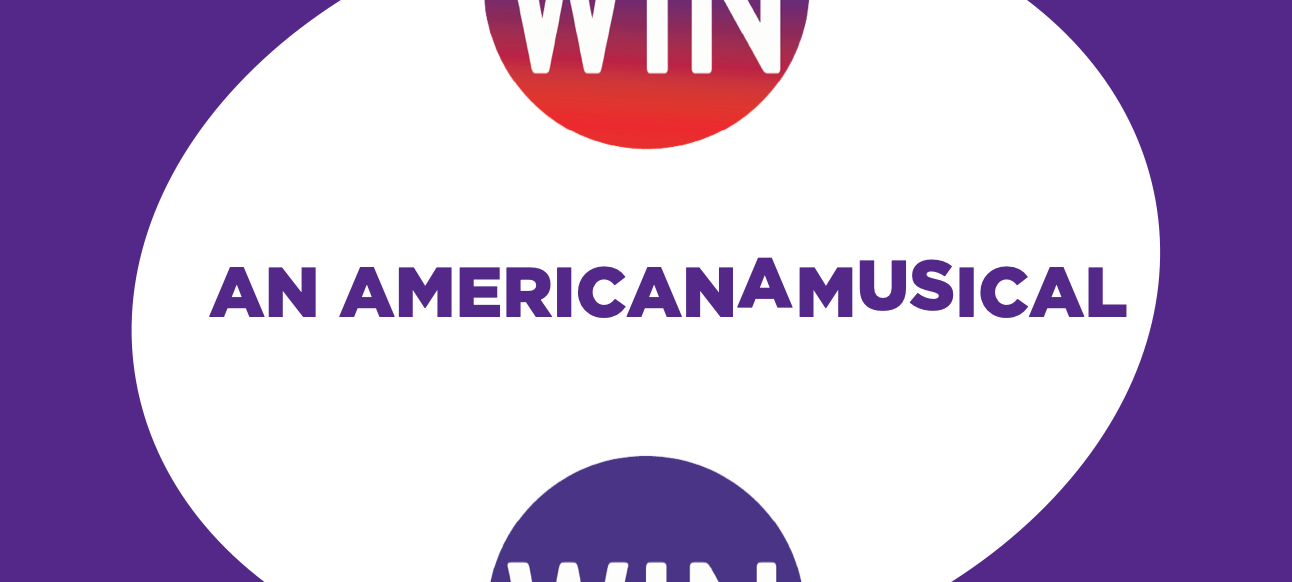Story

Here's What
WIN is a new contemporary musical that explores the life, legacy, and character of President Gerald R. Ford. The story is uniquely framed through a modern-day visit to the Ford Presidential Museum, where a traveler's wryly dismissive exiting remark prompts the museum's muse to step in and guide an imaginative, meta-theatrical journey through the Fords’ lived experience.
The work is a a deeply human, non-partisan celebration of civic grace, focusing on President Ford’s humble integrity, his powerful partnership with Betty Ford, and the profound moral complexities of his accidental presidency—most notably the Nixon pardon. With a warm, whimsical trip-through-Americana score, WIN moves beyond political caricature to ask a timely question: In a polarized world, what does it mean to be a good leader and a good person? It is a story for our time, one that finds its heroism not in ambition, but in decency.
Why This, Why Now
When developing a project, Tony Thomas (acclaimed producer of works such as Dead Poets Society and The Golden Girls) asks the essential foundational questions: Why this story? Why now?" In the spirit of Thomas' cue, here's a producer's response regarding WIN:
Why this story?
Because on the surface, the story of Gerald Ford seems unremarkable, and that is precisely what makes it essential. We are a culture obsessed with origin stories of seismic genius and tragic flaw. We write musicals about prodigies who shaped the nation, revolutionaries who died for a cause, and tortured artists who changed the world. WIN is not that.
WIN is a story about the quiet, crucial power of character. It’s about a man who was never supposed to be president, who stepped into the heart of a constitutional firestorm not with a lust for power, but with a sense of profound, humble duty. In a theatrical landscape full of tales about the people who demanded the spotlight, this is a story about the man who had the spotlight thrust upon him and chose to use it to heal a nation rather than aggrandize himself.
But it’s not just Ford’s story. It's the story of a partnership. It’s the story of Betty Ford, a woman of incredible strength, wit, and vulnerability who redefined the role of First Lady by speaking uncomfortable truths about addiction, women's health, and equality. It's a story about family, step-parenting, and the private humanity that exists behind the public facade of power.
By framing it within a museum, we get to do what great theater does best: we interrogate the past. We ask, "How do we remember? Who gets a statue, and why?" It allows us to play with history, to be meta-theatrical and witty, to invite the audience not just to watch a historical pageant, but to become active participants in the act of seeing and re-evaluating a legacy.
So, why this story? Because it’s not about a political party; it’s about public service. It’s not about a president; it’s about a person. It’s an American story that finds its heroism not in ambition, but in decency.
Why now?
Because we are living in a moment of profound political polarization and civic exhaustion. The national discourse is dominated by caricature, outrage, and a relentless focus on what divides us. The very concepts of civility, compromise, and quiet competence feel like relics of a bygone era.
Now, more than ever, we need a story that reminds us of our capacity for grace.
WIN is an antidote to the cynicism of our time. It offers a narrative where a leader’s primary struggle is not to defeat an enemy, but to navigate a moral crisis with integrity. The central drama—the Nixon pardon—is a crucible of conscience, an act of political courage that was deeply unpopular at the time but is now widely seen as a necessary, healing wound. To explore that moral complexity on stage, right now, is to hold up a mirror to our own moment and ask what we are willing to sacrifice for the greater good.
Furthermore, during the 50th anniversary of the Ford administration, we have a unique, timely opportunity to re-engage with this pivotal period of American history. The 1970s were, like our own time, an era of deep cultural division, institutional distrust, and economic anxiety. By looking back, we don’t just learn about the past; we gain crucial perspective on the present.
Finally, audiences are hungry for stories with heart. They want to be moved, to laugh, and to leave the theater feeling a sense of connection and hope. WIN is warm, it is witty, it is deeply human. It is a celebration of the idea that true strength doesn't always roar; sometimes it's the steady hand that guides the ship through the storm.
In a world shouting for attention, WIN is a story that chooses to listen. And that is a story we desperately need to hear, right now.
